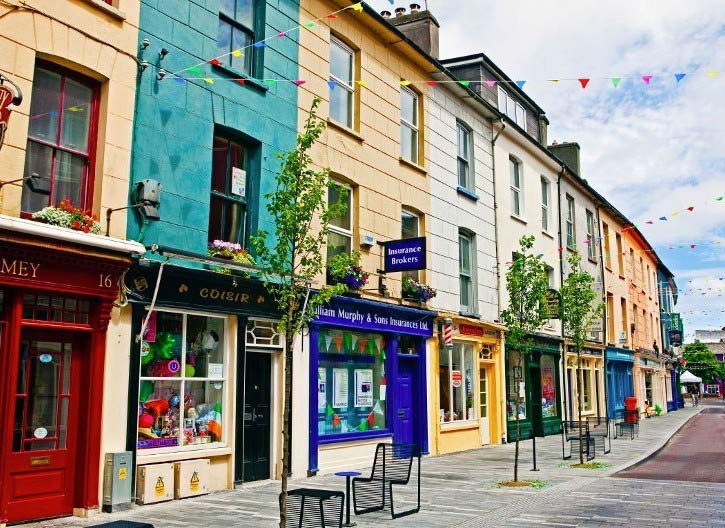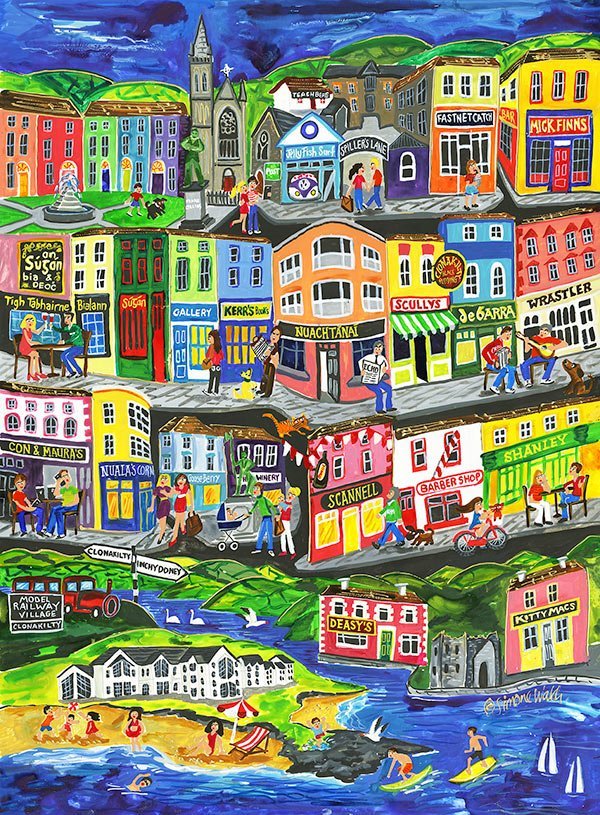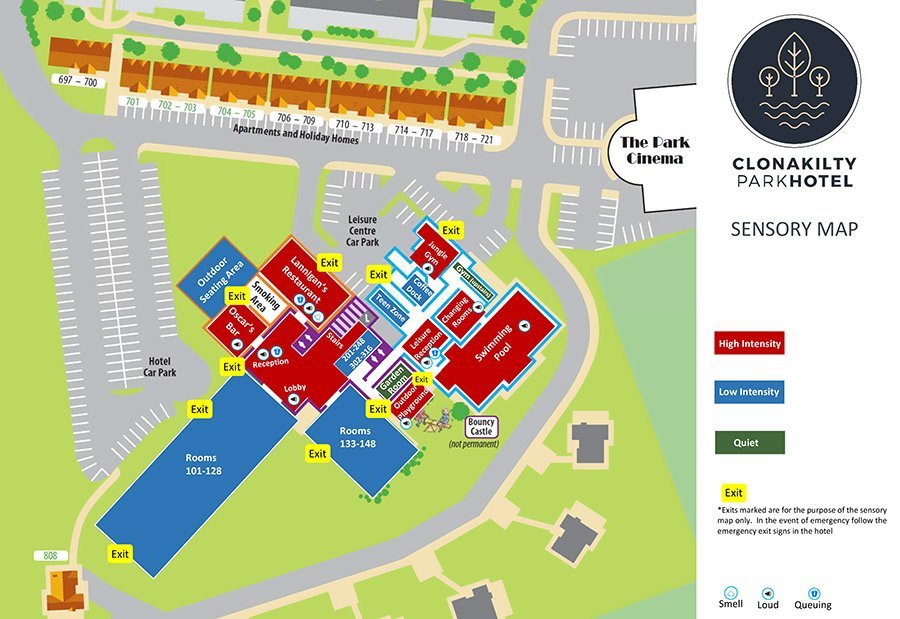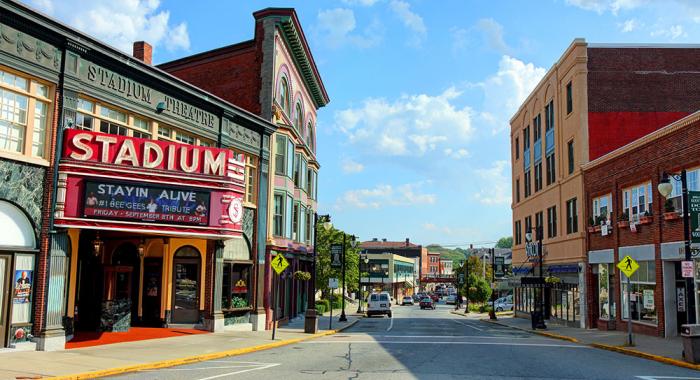Being autism-friendly: big steps for two small towns
Finding a place to be comfortably autistic can be difficult—and is oftentimes impossible in public settings. However, some towns are starting to become autism-friendly.
Clonakilty in County Cork, Ireland, and Austin in Minnesota, United States are two communities that have chosen to embrace neurodiversity, and more specifically, autism.
Tolkien dreamscapes & autistic escapism
Nestled between rolling green pastures and a tidal bay that empties into the Celtic sea, Clonakilty is one of a growing number of cities leading the way on neuro-diverse acceptance. Though the beautiful, mist-kissed landscape and its small population size (4,952 total residents as of the 2016 census) are autism-friendly in their own right, this town is also the first of its kind in Ireland.[1]Census 2016 Sapmap Area: Settlements Clonakilty | Central Statistics Office

Clonakilty (Clona for short) is Ireland’s first autism-friendly town, a designation the quaint seaside town was awarded to by the Irish autism advocacy group AsIAm in 2018. The town’s efforts to embrace—rather than ignore—autism started at Clona’s local supermarket chain, SuperValu. Community leaders took steps to make SuperValu more autism-friendly, and have since spread the model to encompass the entire town.[2]A First For Ireland With Clonakilty Becoming Ireland’s First Autism Friendly Town | AsIAm The more the merrier, as the saying goes.
Clonakilty’s official website has an “autism friendly” section in the menu panel at the top of the page. Upon clicking, one is greeted with some comforting statistics:
In order to acquire this [autism-friendly] designation, Clonakilty had to go through a robust accreditation process:
It had to engage and train 25% of businesses and voluntary organizations, train 50% of public services, 50% of school communities, 50% of healthcare professionals, 3 employers, and reach and engage 25% of the town’s population and develop a three-year autism-friendly town plan.[3]Clonakilty: Autism-friendly town | Clonakilty

Having public services and businesses on-board with training on how to engage with and include the autism community allows for greater collaboration and trust. And for autistic residents of Clona, it also means that employers will look to hire and accommodate their employees on the spectrum. This is especially important as critical community services and employers often misunderstand autism at the detriment of autistic individuals.[4]The Coming Care Crisis as Kids With Autism Grow Up | The Atlantic
As for recreation, it can be difficult to find venues that offer a low-sensory environment. Clona’s answer to this issue is for businesses to offer special accommodations, such as designated quiet spaces. Another accommodation is a so-called relaxation box, which is a small kit filled with stim-toys for people to use to help them regulate and prevent sensory overload. Some venues even offer quiet hours on given days.
The award-winning Clonakilty Park Hotel created sensory maps that detail how intense of a sensory experience to expect throughout the hotel’s grounds.[5]Austism Friendly Champion | Clonakilty Park Hotel In the image below you can see one such sensory map.

In addition to the previous accommodations, many places allow customers to slip them subtle cards so as not to draw attention to themselves. These printed cards with accommodations and directions are discretely handed to an employee. This subtle process is one of many little gestures that can make a world of difference.
Here is an official video on Clonakilty’s autism-friendly designation and how their businesses and local services account for autistics during city planning:
Signs of good sailing ahead
Clona’s dedication to understanding and embracing autism is certainly commendable. However, this is just one example of a growing trend.
Across the Atlantic Ocean, in the hometown of SPAM (the famous meat product) of all places, exists yet another autism-friendly community.

Austin, Minnesota is also embracing its autistic community. Hormel Foods, the creators of SPAM, employs autistic people like Samuel, the expert of all things SPAM. Many of us on the spectrum are endowed with a gift of incredible declarative memory, or a keenness for facts.[6]Powerful memory system may compensate for autism’s deficits | Spectrum Samuel’s autism (and his undying love for SPAM) enables his impressive memory for facts and statistics, making him the perfect tour guide for the SPAM museum. His official position is that of a Spambassador, which is certainly the greatest job title I’ve ever heard of.[7]The town that gave the world Spam is proud to be ‘autism-friendly’ | The Washington Post
Austin also offers sensory-light experiences throughout the venues in its town as well as training for participating employers. And, in addition to these services, the town also hires its own community autism expert. Mary Barinka, a former marketing executive for Hormel and mother to her teenaged autistic daughter, guides her community on how to be more autism-friendly. Austin’s success has led to her getting calls from other communities, such as Salt Lake City in Utah, which asked her help in becoming more autism-friendly.
Facilitating success
Clonakilty and Austin are examples of what gains could be had from a little compassion and some real effort to create meaningful change. By embracing rather than rejecting neurodiversity, both these towns have come to be leaders in the move to include Autistic people in community planning.
A little compassion can go a long way. Facilitating the success of autistic people not only makes their lives better but it makes for a more collaborative and healthier community; one where people are embraced rather than ostracized for their differences. And that sort of peace can’t be bought—no matter how nifty those little relaxation boxes may be.
Comments
Let us know what you think!